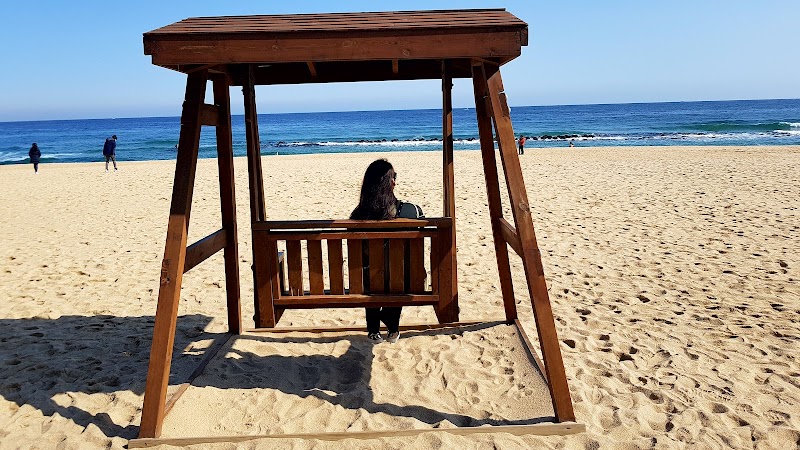
Racing the Edge: Experience the Yeongdeok Coastal Marathon Adventure
The Yeongdeok Coastal Marathon challenges runners with a diverse 42.195 km coastal route that pushes endurance while revealing dramatic sea vistas and forested trails. Perfect for adventurers seeking a fusion of athletic challenge and raw natural beauty, this marathon encourages thoughtful preparation to meet its shifting terrain and weather.
Hydrate Consistently
Carry a hydration pack or water bottle; aid stations are spaced but weather and wind can accelerate dehydration on open stretches.
Wear Trail-Ready Footwear
Expect varied terrain, including gravel, asphalt, and packed dirt. Shoes with durable soles and good grip provide stability and protect against rocky sections.
Dress in Layers
Coastal winds make temperatures fluctuate. Breathable, layered gear helps maintain comfort from cool mornings into stronger midday sun.
Time Your Start Early
Starting the marathon early avoids afternoon heat and allows for better pacing across challenging segments exposed to wind and sun.
Racing the Edge: Experience the Yeongdeok Coastal Marathon Adventure
The Yeongdeok Coastal Marathon traces a rugged 42.195-kilometer route along the northeastern shores of Gyeongsangbuk-do, offering a raw encounter with Korea's restless seas and unyielding cliffs. This isn't just a race; it's an engagement with a landscape fiercely itself—where each turn reveals the sharp contrast between the ocean pushing forward and pine forests holding their ground.
Starting near Yeongdeok Town, the course winds along rocky coastlines and forested embankments, combining moderate elevation shifts totaling roughly 400 meters of ascent and descent. The terrain is a mix of paved coastal roads, packed dirt paths, and occasional gravel stretches, demanding durable, grippy footwear that can handle both smooth surfaces and unpredictable footing.
Your senses will lock onto the roar of waves daring you onward and the salty wind that slices through the sylvan canopy. Seabirds wheel overhead, guardians of the cliffs jutting into the Sea of Japan. Steep inclines around the midpoint test endurance as the trail skirts jagged promontories, where panoramic views stretch from distant islands to fishing boats bobbing like toys.
Preparing for the Yeongdeok Coastal Marathon calls for practical strategy: hydration stations are spaced roughly every 5 kilometers, but carrying a lightweight hydration pack ensures steady fluid intake. The coastal breeze can shift temperatures dramatically—layered running gear suits cooler mornings and midday warmth alike. Timing the run for early to mid-autumn allows you to dodge summer humidity and winter's biting chill while soaking in clearer, crisper air.
Beyond the challenge, the course opens a window into Yeongdeok's famous blue crab culture, a local culinary highlight to savor post-race. The marathon's pulse is not just about speed but engagement with a coastline that welcomes runners as participants in a living, breathing ecosystem. In every step, the landscape insists on attention, respect, and a steady pace—a reminder that adventure unfolds in balance with practical preparation.
Nearby Trips
All Adventures
Boat Charters
Water Activities
Adventures near Yeongdeok, Gyeongsangbuk-do
Discover the unique and memorable adventures that make Yeongdeok, Gyeongsangbuk-do special.
Frequently Asked Questions
What is the total elevation gain of the Yeongdeok Coastal Marathon?
The course features roughly 400 meters of cumulative elevation gain, presenting rolling hills that demand endurance without extreme climbing.
Are there aid stations along the marathon route?
Yes, aid stations appear approximately every 5 kilometers, providing water and basic supplies, though carrying additional hydration is highly recommended.
Is the marathon route suitable for beginner runners?
While beginners can attempt it, the route's length, mixed terrain, and coastal exposure make it better suited for moderately experienced runners with good stamina.
What wildlife might I encounter during the race?
Participants may spot coastal seabirds like gulls and cormorants, as well as pine forest residents including squirrels and various insects, all quietly inhabiting this restless edge.
Are there any cultural experiences tied to the marathon?
The marathon passes near local fishing villages famous for blue crab harvests—after the race, sampling fresh crab dishes is a rewarding part of the locale’s heritage.
What weather conditions should I prepare for during the race?
Expect variable coastal weather: strong winds, sudden shifts in temperature, and occasional rain. Layered clothing and windproof gear make adapting manageable.
Recommended Gear
Trail running shoes
Provide reliable grip and foot protection on mixed coastal terrain, essential for balance and avoiding injury.
Hydration pack
Ensures steady fluid supply on exposed stretches where aid stations are spaced apart.
Lightweight windbreaker
Protects against sudden coastal winds and rain without overheating.
Layered running apparel
Allows adjusting body temperature efficiently as morning chill gives way to midday warmth.
Local Insights
Hidden Gems
- "Haegeumgang cliffs viewpoint just past the halfway mark, offering sweeping ocean views away from the main race route."
- "Seongnae Forest patches where pine scents deepen and shade thickens, providing a refreshing contrast to exposed coastal segments."
Wildlife
- "Black-tailed gulls patrol the coastline, often seeming almost to race alongside runners."
- "Rare sightings of sea otters near inlets, occasionally visible from higher trail points."
History
"Yeongdeok has a rich fishing heritage and the marathon course integrates pathways once used by fishermen travelling between coastal villages, preserving an enduring bond between nature and community."
